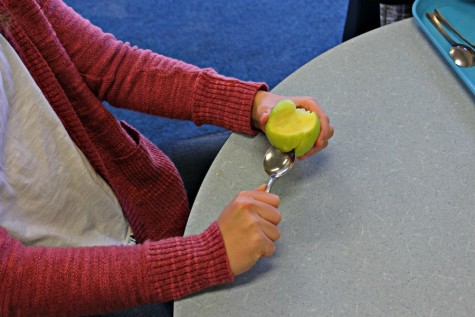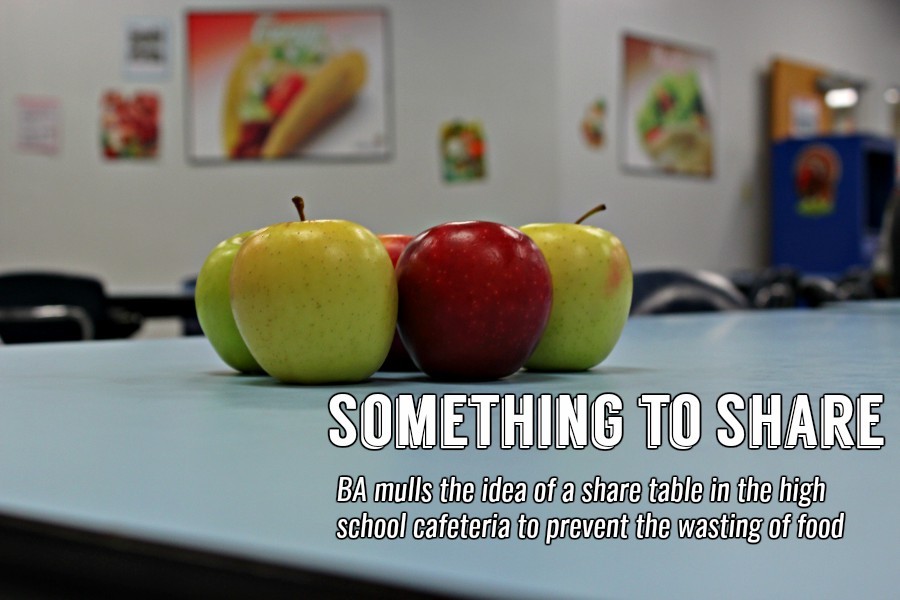BAHS mulls the idea of a share table
Table would permit the sharing of unused food
Everyday piles of apples are discarded or destroyed in the cafeteria.
November 25, 2015
If you’ve ever been in the cafeteria during third lunch, you cannot help but notice the demolished fruit that lies uneaten on the freshmen’s trays: apples, oranges, and fruit cups.
How could this happen?
Freshman stab apples out of sheer boredom. The apple that could help save someone from hunger, demolished, and no longer acceptable to eat.
This could be stopped if only we could teach our generation the value of proper nutrition.
We could also create a share table. However, federal regulations may prevent it at this point.

One freshman hacks apart an apple just to pass the time.
“The information concerning the share table is somewhat complicated,” said B-A Superintendent Dr. Thomas McInroy. “If food is purchased with government money, such as free and reduced lunch, there are some constraints to the ‘giving’ of that food away to a shelter, for example. However, I believe that we can have a share table where other students can eat the food.”
In creating a share table, students would donate their untouched and uneaten food to give to other hungry students.
A number of staff and students have realized what has been happening with the food in BAHS.
“Someone else could really need the food. I think it’s sad that hunger is even a problem in today’s world with all of the resources we have now,” said senior Jake Burch.
“I don’t like to see food wasted, especially since we have families in Bellwood who can’t afford food,” said Dr. McInroy.
Although students and staff want to help, the district is unable to do so at this time, pending the research of a solicitor from Andrews and Beards Law Offices.
“The solicitor is getting more information on the legalities of sharing food,” said Dr. McInroy.
Either way, the food must be given but can’t be returned, which creates situations where food is often thrown away even though it wasn’t actually wanted in the first place.
“We can’t take anything back,” said food services worker Deb Rose. “It has to be pre-approved by the food service director.”






